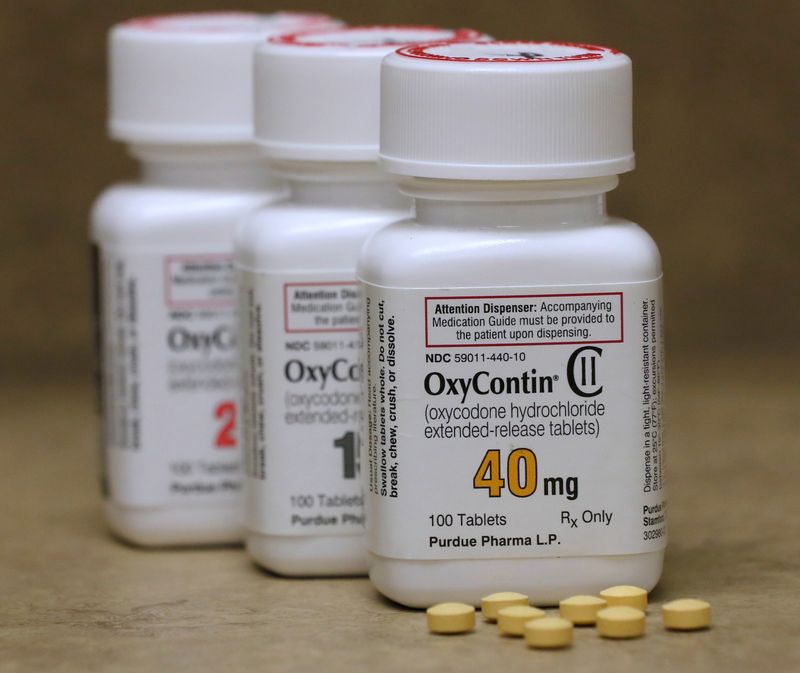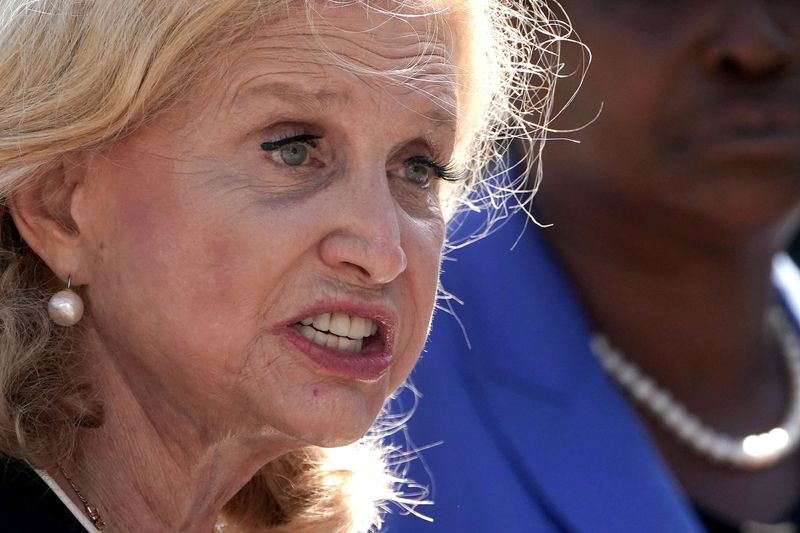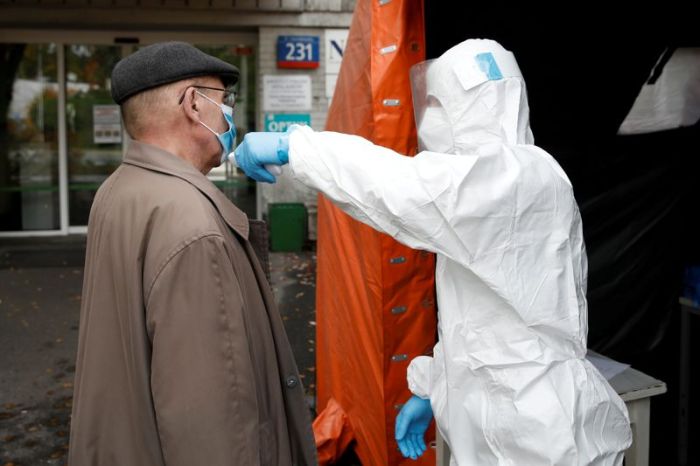(Reuters) – Two Sackler family members who previously served on OxyContin maker Purdue Pharma LP’s board have agreed under pressure to testify this week before a U.S. House of Representatives panel examining the nationwide opioid epidemic, avoiding subpoenas threatened by the committee’s chairwoman.
David and Kathe Sackler reached an agreement in recent days with the House Oversight Committee to appear at a hearing set for Thursday, according to a Monday memo from Democratic Chairwoman Carolyn Maloney to members of the panel. The two are among the Sackler family members who own Purdue.
Purdue Chief Executive Craig Landau is also slated to testify at the hearing, the memo said. Landau was not at any point threatened with a subpoena, two people familiar with the matter said.
In a statement, Purdue confirmed that Landau agreed to testify, adding that the company has “consistently cooperated” with the committee. Landau’s testimony will include steps that Purdue is taking to address the opioid crisis, which includes a proposal to settle widespread litigation from U.S. communities that it values at more than $10 billion, the company said.
A spokesman for Kathe Sackler declined to comment. A spokesman for David Sackler did not immediately respond to a request for comment.
The opioid epidemic has claimed the lives of roughly 450,000 people in the United States since 1999 due to overdoses from prescription painkillers and illegal substances such as heroin and fentanyl, constituting an enduring public health crisis. Purdue reaped more than $30 billion from opioid sales over the years that enriched Sackler family members, and it funneled illegal kickbacks to doctors and pharmacies, investigations have found.
Maloney in November invited four family members – David, Richard, Kathe and Mortimer D.A. Sackler – as well as Landau to testify. On Dec. 1, lawyers for the four Sacklers declined the invitation and did not respond to subsequent overtures from committee staff to move the hearing to January, the memo said. That prompted Maloney last week to threaten subpoenas unless family members voluntarily agreed to appear.
After “numerous consultations” between committee staff and Sackler lawyers, the two sides reached agreement for the two family members to testify, Maloney said in the memo.
The hearing, to be conducted remotely, was originally set for Tuesday. It was delayed by two days to accommodate scheduling concerns, which included Purdue bankruptcy proceedings also set for Tuesday.
In her memo, Maloney pointed to documents the committee obtained in an ongoing investigation that she contends show the Sacklers closely involved in Purdue’s efforts to expand market share for OxyContin, even after a company affiliate faced U.S. criminal charges of misbranding the painkiller in 2007.
The scheduled hearing follows a far-reaching U.S. Justice Department settlement with the Sacklers and Purdue in October that drew criticism from congressional Democrats and state attorneys general suing the company and its owners over the opioid crisis.
The lawmakers and attorneys general have said the deal failed to hold the Sacklers more accountable and faulted its endorsement of a Purdue bankruptcy plan to restructure it as a public benefit company. The envisioned new entity, while no longer controlled by the Sacklers, would still sell OxyContin, the company’s addictive prescription painkiller that has figured prominently in the opioid epidemic.
GUILTY PLEA
Purdue in November pleaded guilty to criminal charges over its handling of OxyContin, which included defrauding the U.S. Drug Enforcement Administration and paying illegal kickbacks to doctors and a healthcare records vendor, all to help keep opioid prescriptions flowing. The plea deal was part of a broader settlement allowing the company to effectively sidestep paying billions of dollars in penalties.
Sackler family members agreed to pay $225 million to resolve Justice Department civil claims that they disputed. They were not criminally charged.
The Justice Department contends that the settlement, which foregoes most of a $2 billion forfeiture on the condition Purdue receives court approval for its bankruptcy plan, allows more money to flow to U.S. communities suffering from the opioid epidemic.
Purdue and its Sackler family owners have been at the center of thousands of lawsuits and investigations for several years seeking to hold alleged perpetrators responsible for fueling the epidemic.
Federal, state and local officials have outlined a longstanding effort by Purdue and Sackler family members to aggressively market opioids while minimizing their potential for abuse and overdosing. Sackler family members have said they acted ethically and responsibly while relying on assurances from Purdue management that the company’s practices complied with regulations and legal requirements.
Justice Department officials have said recent settlements do not foreclose future criminal prosecutions of individuals associated with Purdue.
(Reporting by Mike Spector in New York; Editing by Daniel Wallis and Will Dunham)




















